Registered Behavior Technician Interview Questions & Answers
Find the most common RBT interview questions + answers to them in this guide.
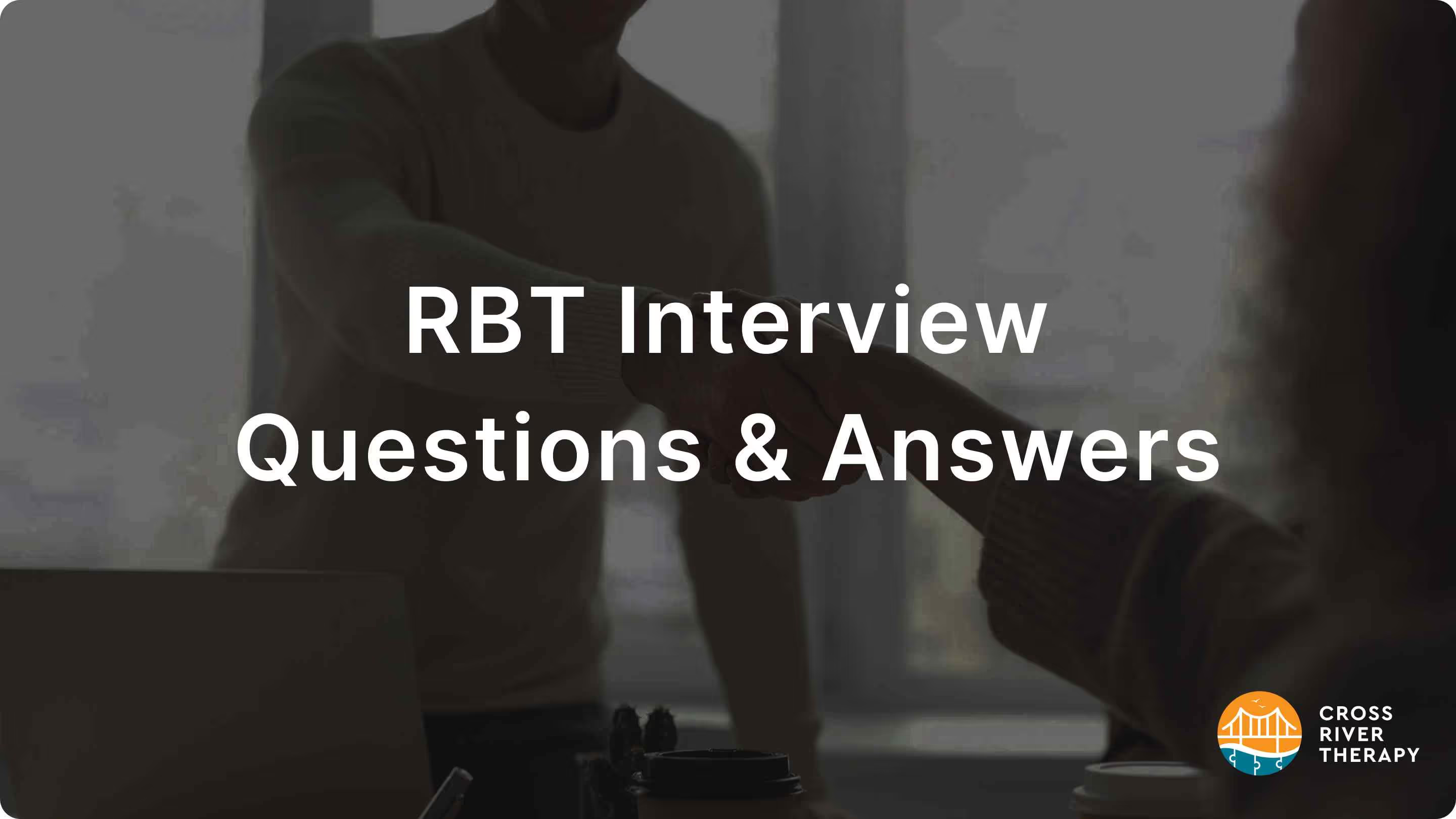
Common RBT Interview Questions
This article will go over the most common interview questions you'll find at an RBT interview. Keep reading to become well-prepared for your RBT interview.

Can you tell me about yourself?
Many job interviews begin with a basic question that asks the interviewee about themselves and their stories. Speak with authority when answering this question.
By the end of the answer, the interviewer should already be feeling positive about giving you the position. Consider using this time to speak about your academic training or previous experience.
Why are you interested in this job position?
Never answer this question with a generic response. You should be knowledgeable of what the position entails. Use this knowledge to speak passionately about your desire to work as a registered behavior technician. Use information you remember from the job ad to form your response.
What experience do you have working with ABA therapy and specifically as an RBT?
If you have any previous experience in applied behavior analysis (ABA) therapy or as an RBT, provide a comprehensive answer about your past experience and what you felt you learned from it. Make sure that you mention how your previous experience readies you for the specific position you're interviewing for.
Why did you choose to work in ABA therapy as your career?
You should be able to provide an honest and in-depth answer about why you chose the ABA career path. If you began your career in this field because you wanted to help people learn how to manage their developmental disorders, speak clearly about it. Give a concise yet earnest answer to this question.
Why do you think you are the best person for this job?
There are many possible answers to this question. Consider explaining that you're motivated and are willing to go above and beyond. You could also highlight your more unique skills if they are relevant to the job.
What are the main strengths that will help you in this role?
Before going to your interview, write down all of your positive attributes and the things you do best. The interviewer won't know what your main strengths are if you keep them to yourself.
What have you done in the last year to improve your skills that are relevant for this role?
Provide the interviewer with a relatively recent example of experience or training that improved your ability to perform the job at hand. If you don't have a scenario that ties directly with your job, use one that's as closely associated with it as possible.
Did you ever have a time when you had a heavy workload? How did you deal with the stress?
You've likely had a heavy workload at some point in the past, which you can reflect on when answering this question. More responsibilities means more stress. The interviewer is asking you this question because they want to know what you've done to overcome your stress. Don't say that you've never felt stressed in a previous job. You should, however, go into detail about some of the strategies you use to cope with this emotion.
Can you tell me about a mistake you made in your previous job and how you dealt with it?
This question is posed by interviewers because they want to know that you can admit you make mistakes. They'll also want to know what you did to navigate these mistakes and resolve them. Before diving into a real mistake that you've made, start by telling the interviewer how you typically define failure.
What was your favorite part of your previous role?
Be positive when answering this question. If you answer that you didn't like much of anything about your previous position, this indicates to the interviewer that you might dislike the new position since it's in the same field. Speak about something you enjoyed doing in your old position that will be part of the new one.
What was your least favorite part of your previous role?
While you should answer this question honestly, don't sound too negative when doing so. If you disliked something about your past job that you won't be required to do with the new one, focus on this when providing an answer.
Do you enjoy working alone or within teams?
The answer you provide to this question largely depends on what the position entails. Your main goal should be to target your answer to what you believe the interviewer is looking for. If you understand the company culture, answering this question will be easier. An effective response is to mention that you're flexible.
Where do you see yourself 5-10 years from now?
This question is designed to have you speak about what you believe your future with the employer to be. Before the interview, write down an answer to this question. While you may be tempted to talk about the difficulty of planning so far ahead, your answer should be clear and needs to target the interviewer.
What are your salary expectations?
Speak about your desire to obtain a competitive salary that accurately reflects your experience and qualifications. You should mention that you've performed research on the type of position you're applying for, which has informed your belief that you're owed a specific range of money.
Technical RBT Interview Questions & Answers
How do you handle aggressive patients?
During your education and training involving the ABA and RBT fields, you've likely learned how to respond to difficult and aggressive patients. Whether an individual is responding with physical aggression or by throwing a tantrum, consider your previous experience when providing an answer. You may focus on identifying the source of the disruption or providing positive reinforcement.
What are some of your most often-used therapeutic techniques?
Your experience with applied behavior analysis should inform your answer to this question. If you've implemented the Picture Exchange Communication System (PECS), discrete trial training (DTT) modeling, or reinforcement systems, speak about these techniques and specific examples of when you used them. Once you've answered the question, the interviewer should be confident that you know what you're talking about.
How do you proceed when there is a disagreement in the care team?
The interviewer is asking this question because they want to know how you resolve conflicts. Describe a disagreement that has occurred in the past, mention the role you had in the situation, explain what actions you took to resolve the conflict, and share the results on how the outcome was positive.
How do you handle a difficult situation with a patient's family?
This is another question revolving around conflict resolution. If you've experienced this issue in your past, recollect it when answering the question. Maybe you offered comfort or communicated with open-ended questions. Share a situation where the result was a positive one.
How do you explain complex medical terms or treatment techniques to patients?
The interviewer will want to know how you convey more detailed and complex medical terms to patients. If you've had any experience in the ABA field, it shouldn't be too challenging to answer this question. Be direct and answer confidently.
Can you describe a situation when the facility you were working in underwent major changes and explain how you adapted to them?
Changes to a work environment can result in less productivity for employees who are unable to adapt to the situation. If there were any major changes to the facility you previously worked in, speak about the steps you took to adapt to these changes and continue maintaining your previous productivity levels.
How do you handle a situation when you don't know the answer to a medical question?
Health care professionals don't automatically know the answer to every question. If an interviewer asks this question, they want to know how you'll overcome an obstacle. When answering, consider telling the interviewer that you would explain to the patient why you don't know the answer before requesting assistance from someone who does.
Can you describe your expertise in skill acquisition and behavior reduction?
Answer confidently about a previous situation you were in that allowed you to improve your skills or reduce aggressive behavior. The interviewer wants to know if you're capable of implementing the knowledge you've gained over the years in practical situations.
Can you tell us about a situation where you managed to successfully convince a reluctant patient that the prescribed treatment plan was the optimum solution?
Patients are oftentimes wary about starting a new treatment plan that they have no familiarity with. This is another complication that routinely occurs in health care settings. If you can convince a reluctant patient that the prescribed treatment is the ideal one, this indicates that you're able to connect with patients and make them feel more at ease. Speak about your past experiences with authority.
What specific individual patient treatment plans have you implemented or revised?
Interviewers ask this question to gain a better understanding of how much training and experience you have for the job. In this role, you'll be tasked with developing customized patient treatment plans for specific patients. An anecdote of a previous experience in this regard demonstrates that you're capable of taking on a role as a registered behavior technician. Don't hesitate to go into detail.
FAQs
How do I prepare for a behavior technician interview?
The best preparation method is to have on hand a set of questions that you wish to ask. If you would rather memorize them, do so the day after the interview.
The fewer questions you ask about the company, the higher your chances of working with a business that you're not fully aware of. You don't have to study the question like a test but don't forget to bring up what you consider the most important questions to you as early in the interview as you can.
What should I expect at my RBT interview?
The interview should be relaxed, cordial, and fun for the employer. Job interviews are more casual in some ways than they were in the past, though you should remain as professional as possible.
Recent News
Related articles
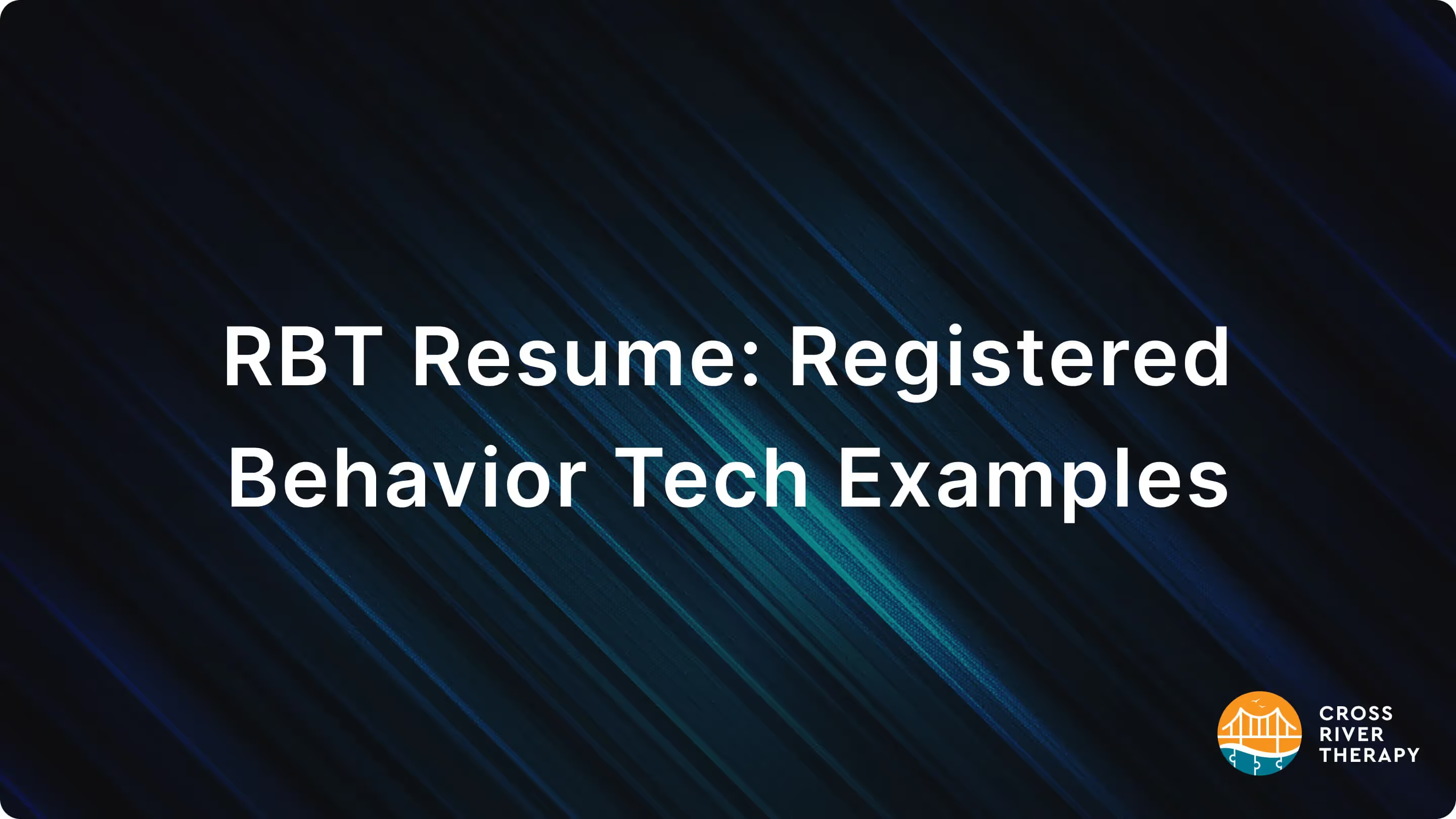
RBT Resume: Registered Behavior Tech Examples
Working with children as an RBT is tough but rewarding. Find out how to write your RBT resume to land your dream job.
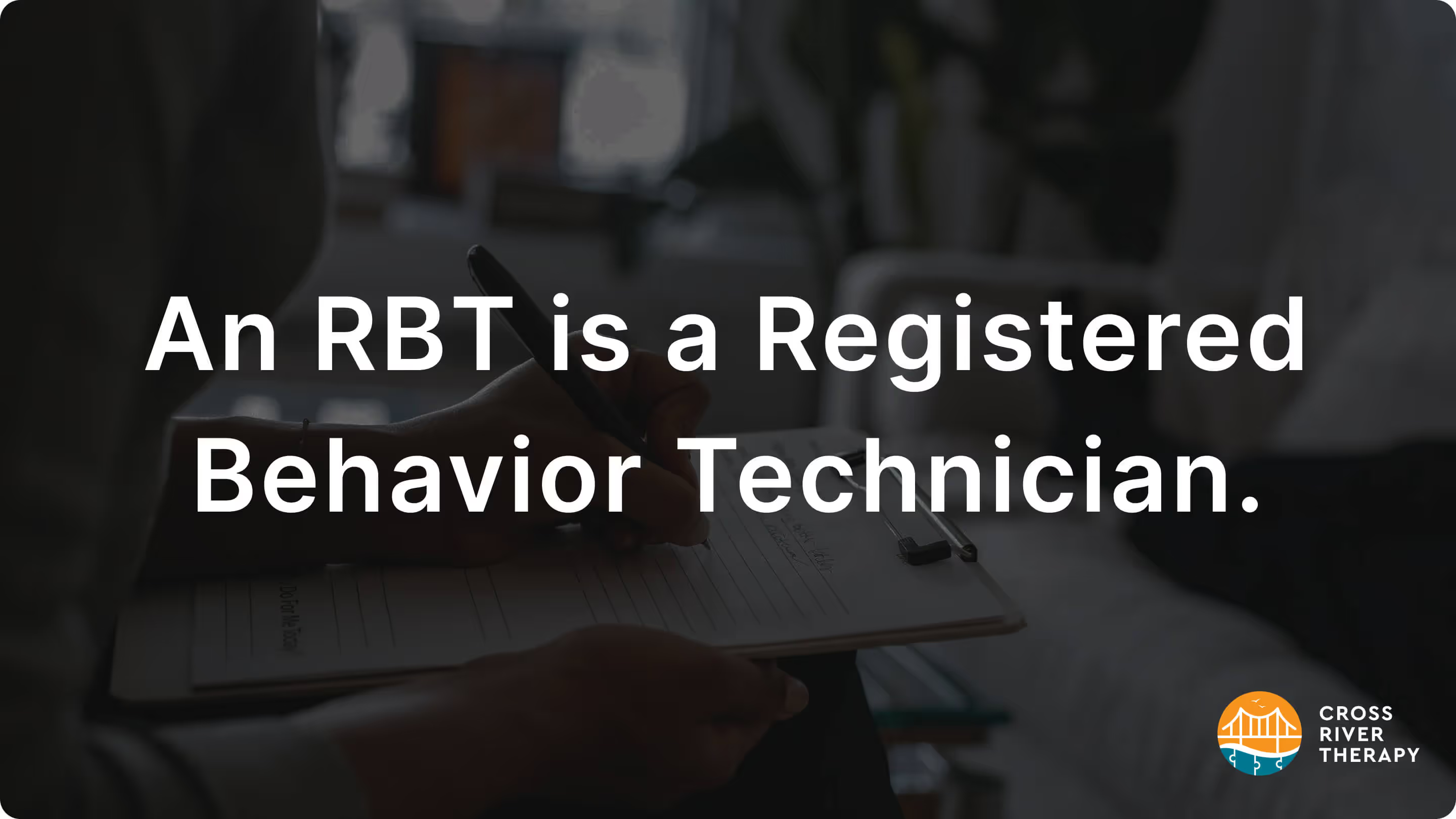
What is an RBT?
Learn what is an RBT, what they do, and more in this guide.

Is RBT Certification Worth It?
Find out if RBT certification is worth it in this guide. Spoiler: it is!

How To Become an RBT (Step-by-Step)
Learn how to become a registered behavior technician (RBT) in this step-by-step guide.
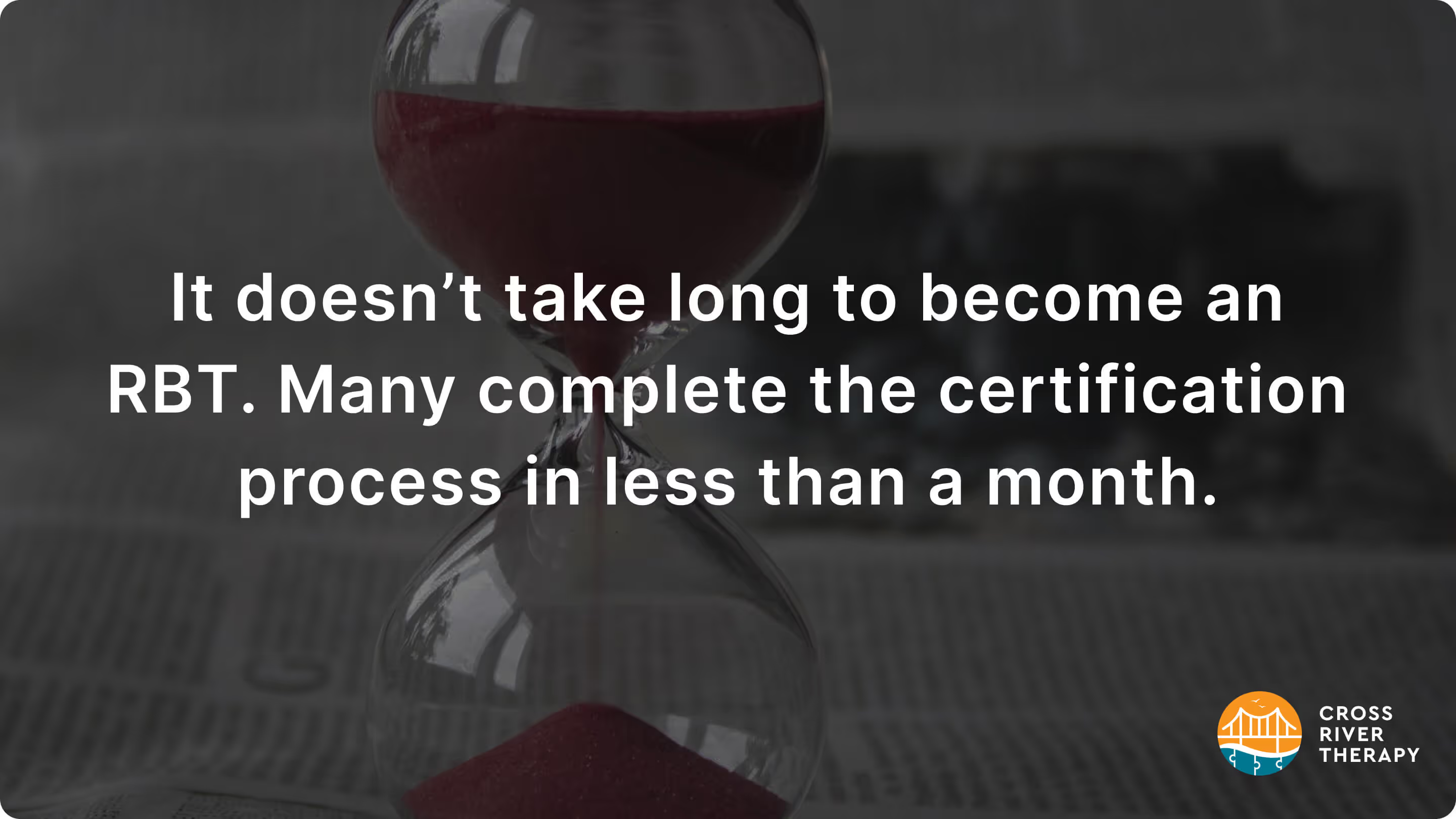
How Long Does It Take To Get RBT Certification?
It doesn’t take long to become an RBT. You're required to complete a 40-hour training course and then pass the RBT exam, which many people can complete in less than a month.
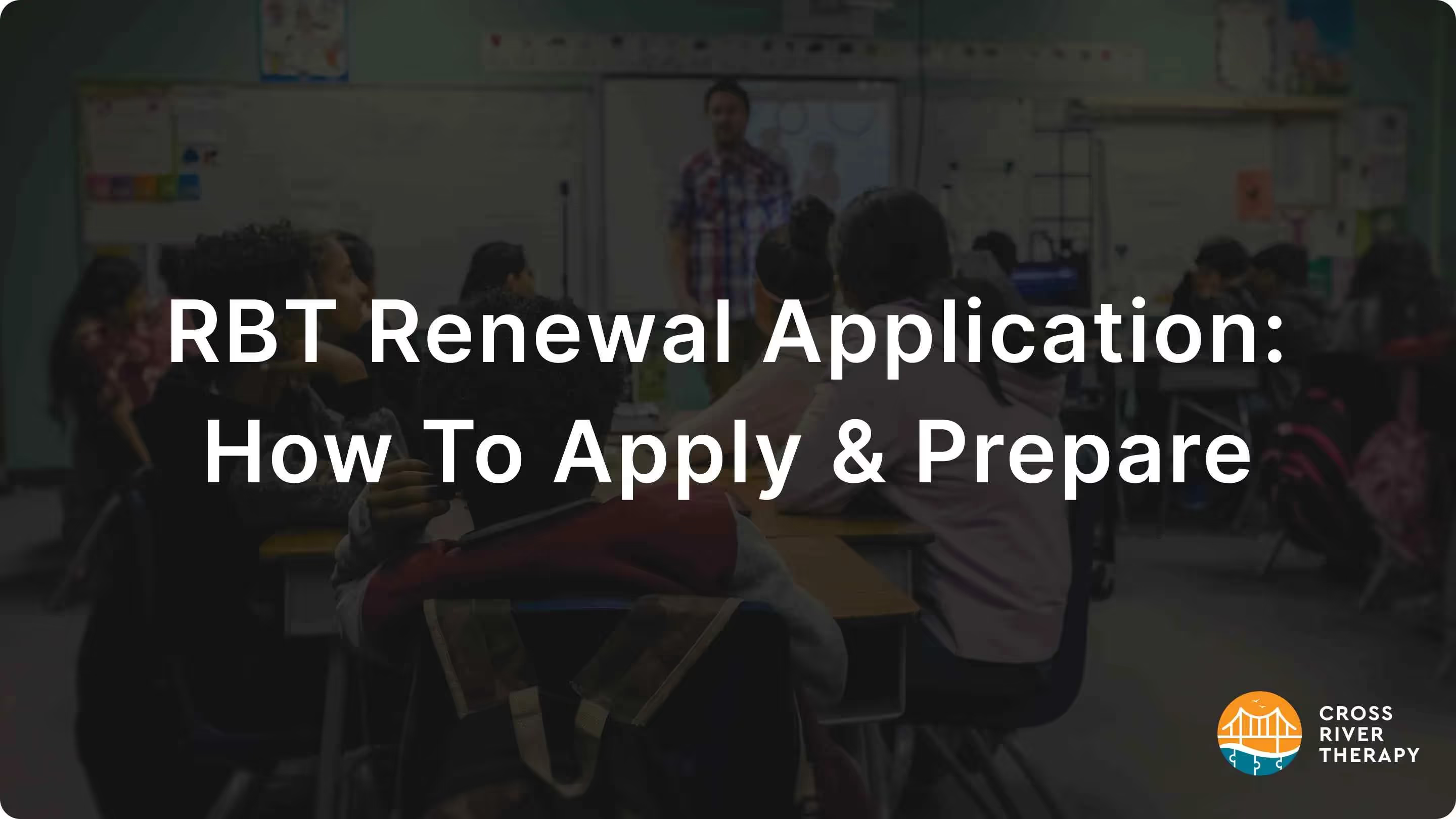
RBT Renewal Application: How To Apply & Prepare
This is a complete guide on the RBT renewal application process. Learn how to apply and prepare today.

Registered Behavior Technician Interview Questions & Answers
Find the most common RBT interview questions + answers to them in this guide.
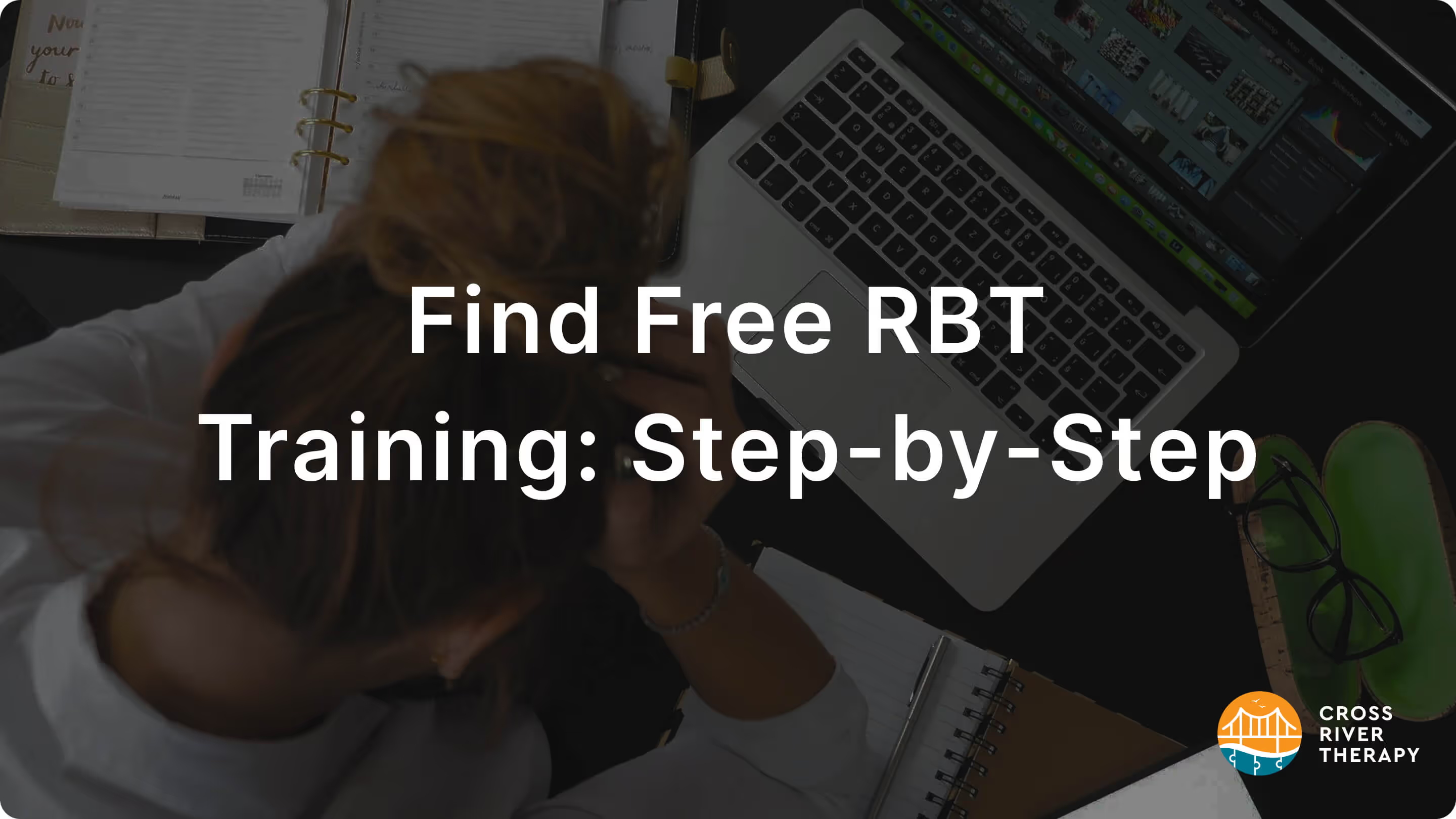
Find Free RBT Training Near You
RBT training opens up the door for therapists to easily start up their careers in the field of Applied Behavior Analysis.
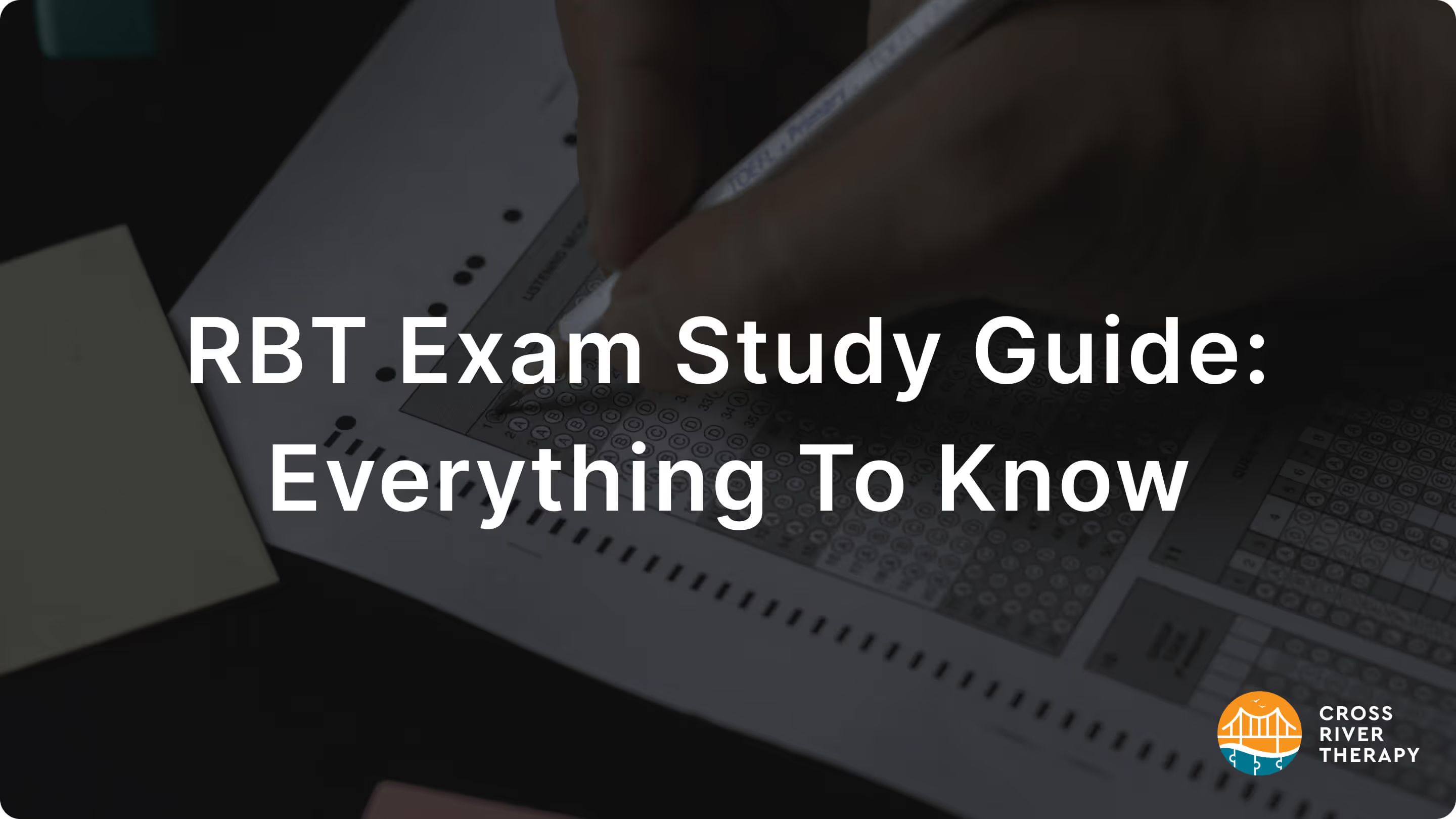
RBT Exam Study Guide: How To Pass
This RBT exam study guide should help you prepare for (and pass) the RBT exam.
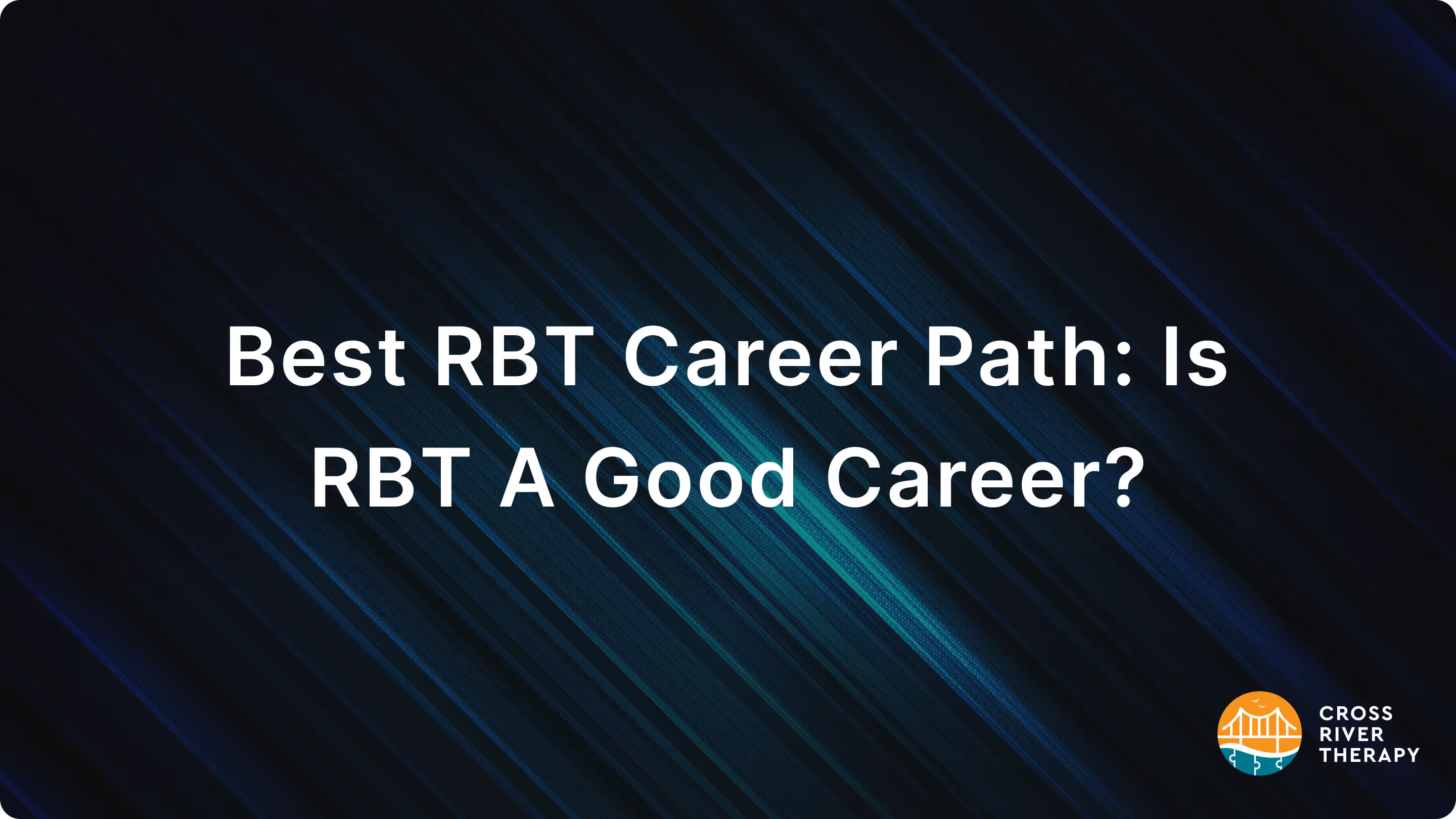
Best RBT Career Path: Is RBT A Good Career?
The best RBT career path is one that pertains to Applied Behavior Analysis.
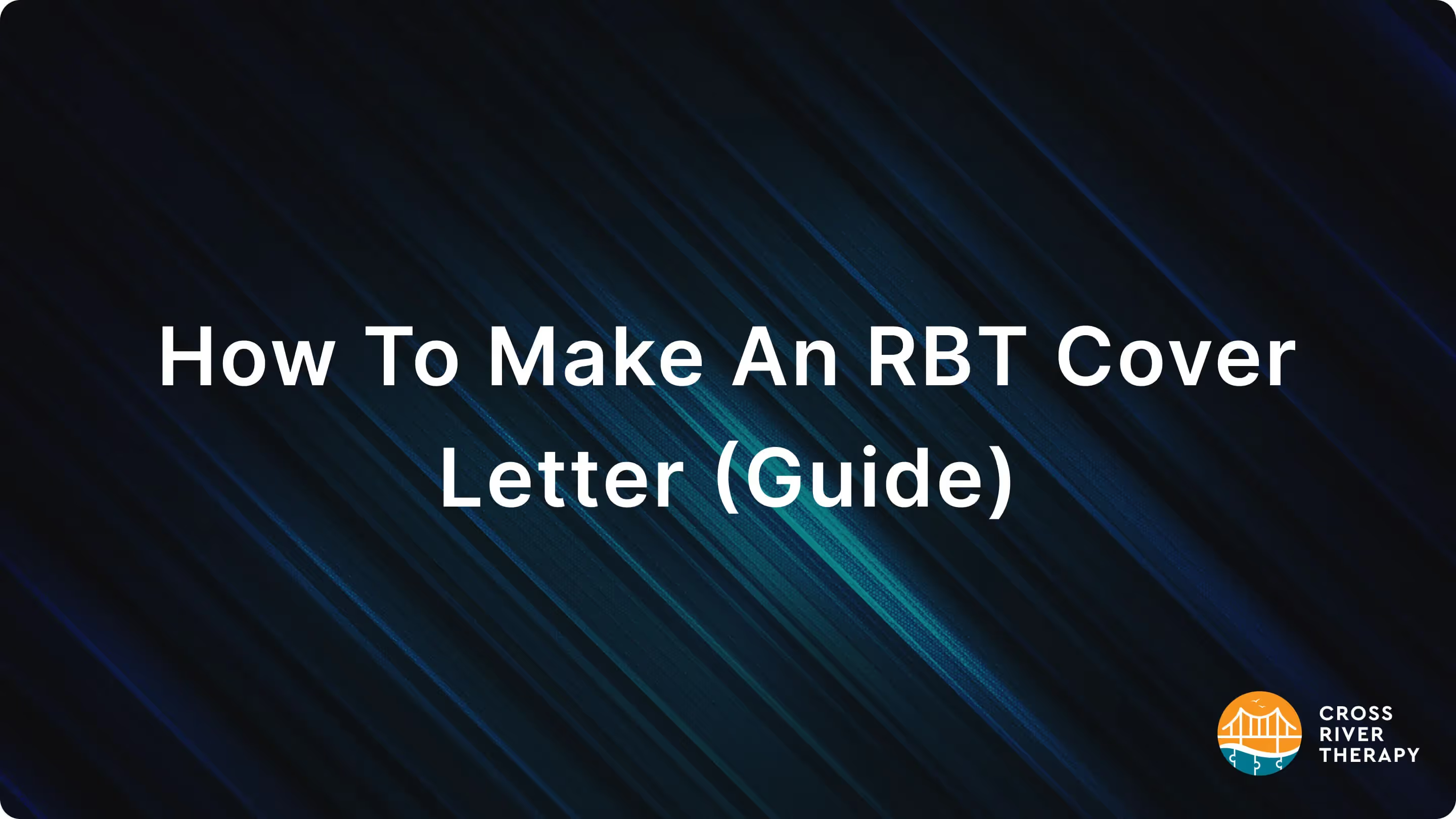
Registered Behavior Technician (RBT) Cover Letter [Guide]
Here is a guide to making an RBT cover letter, and some examples of incredible behavior technician cover letters we’ve seen.
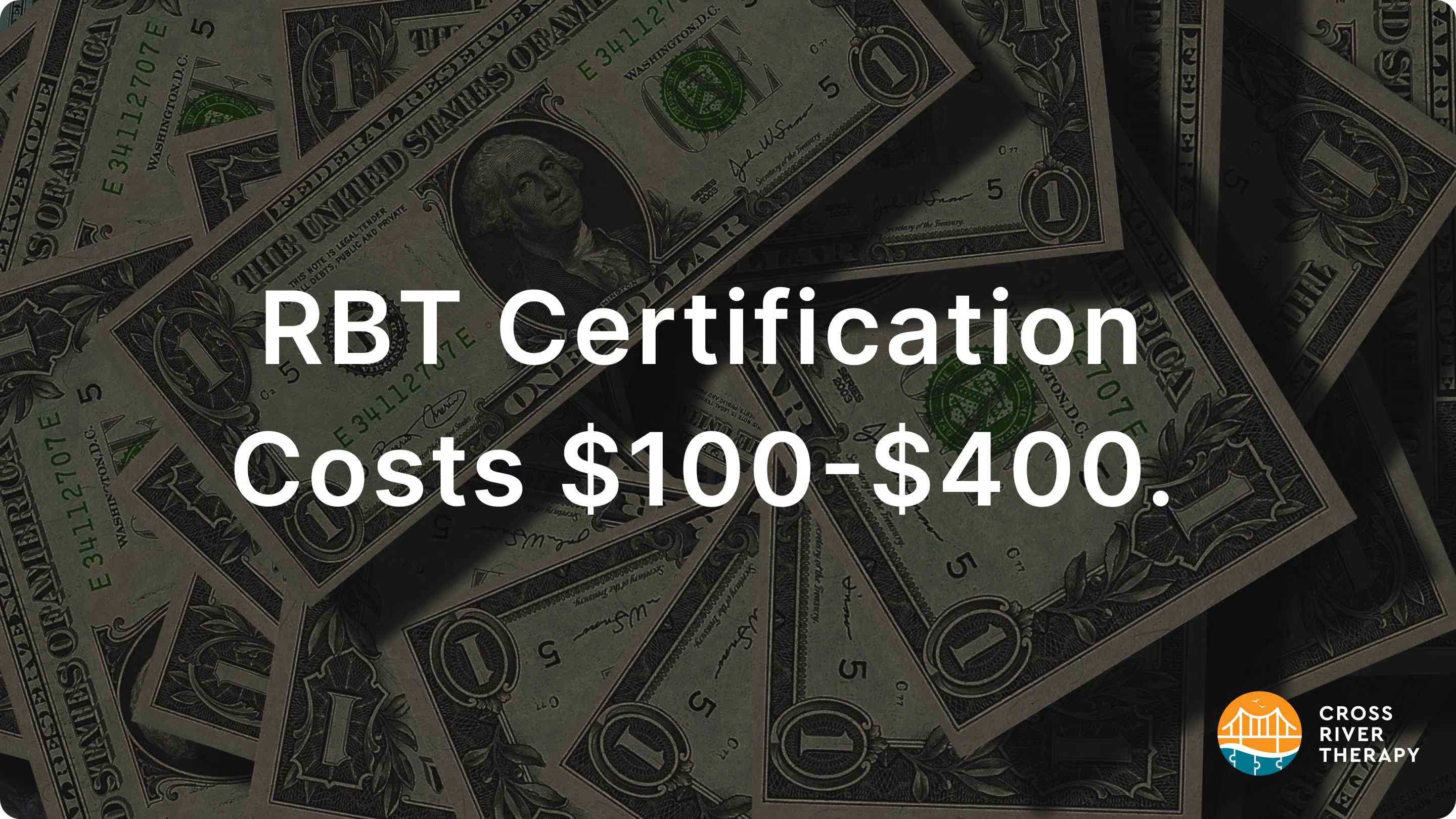
RBT Certification Cost: What To Know
The average cost of RBT certification is between $100 to $400.

